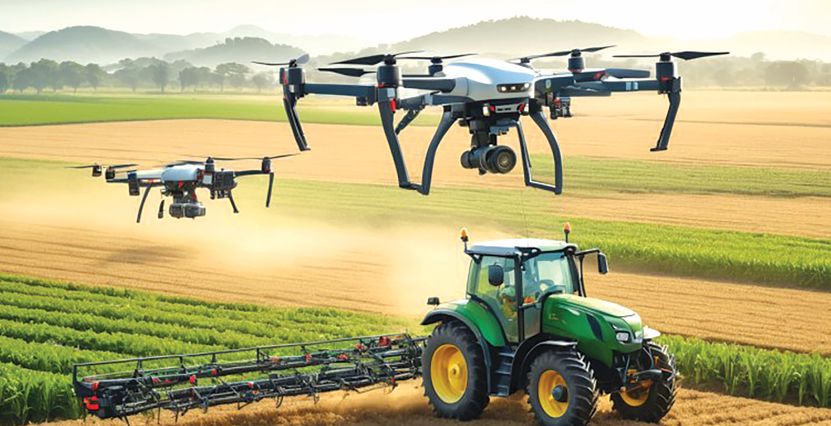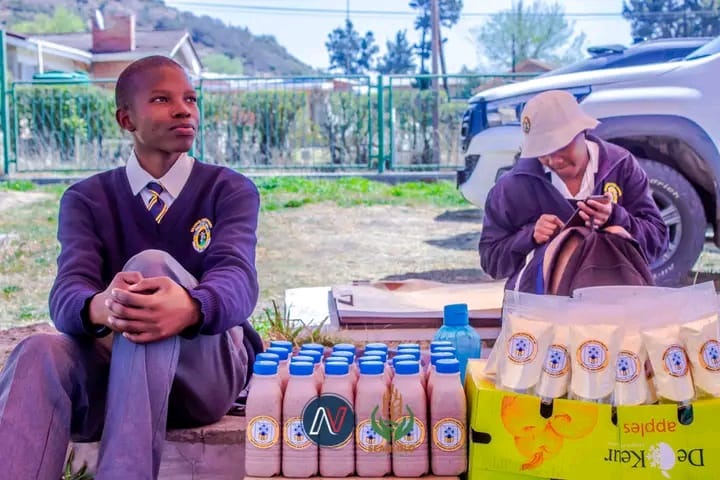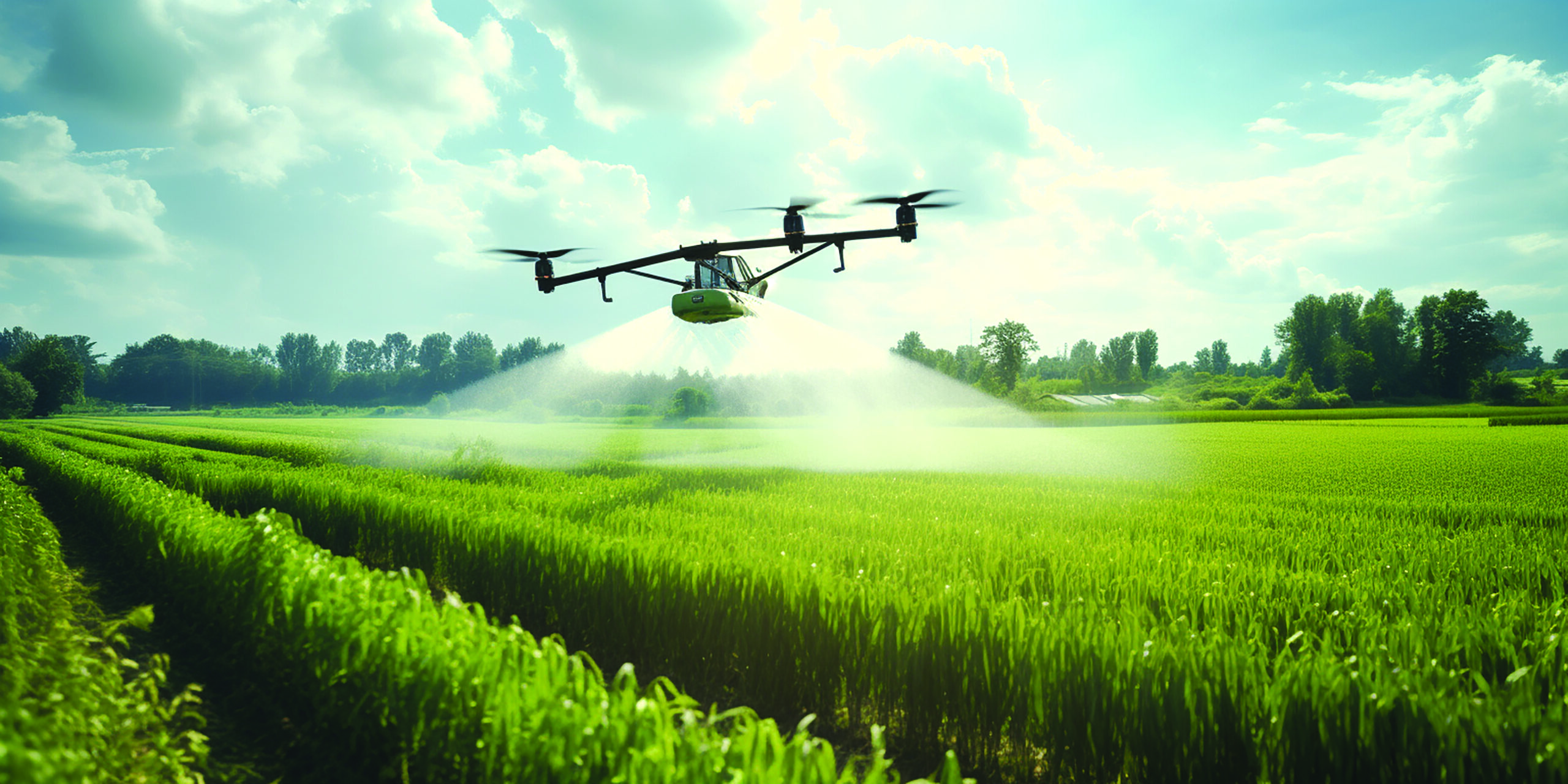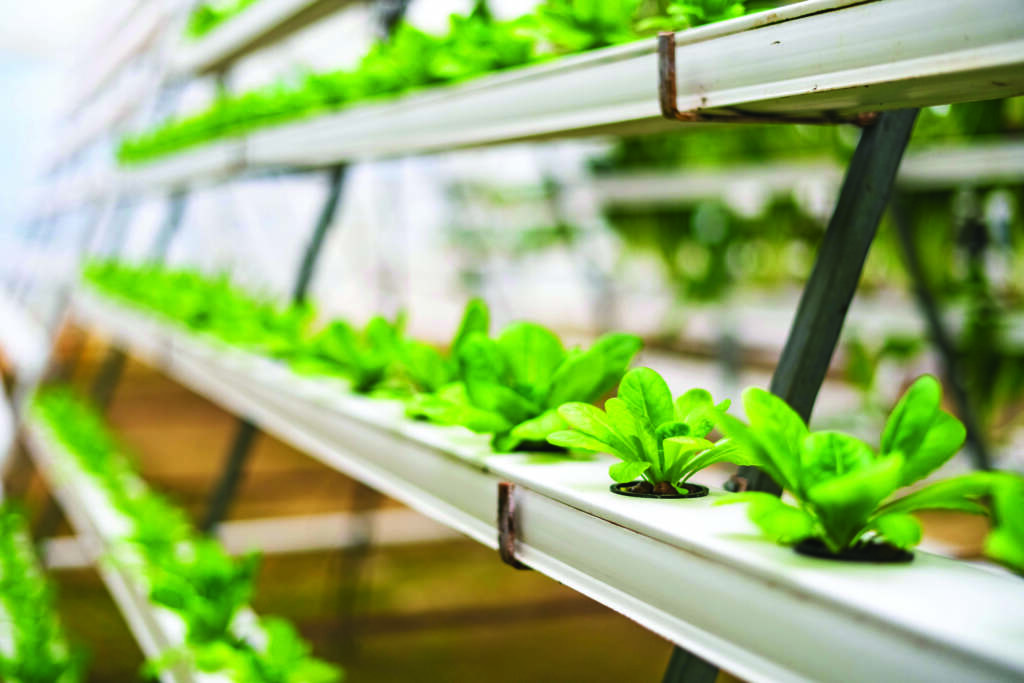Kabelo Masoabi
Lesotho’s agricultural sector is on the verge of a technological revolution, spearheaded by innovative individuals like Lemohang Letsoela.
The 26-year-old pilot from Ha Seoli, Maseru, is leveraging his aviation expertise to introduce drone technology as a game-changer in precision farming. Through his company, Letsoela Agro-Aviation, he aims to transform the way local farmers approach agriculture, making it more efficient, sustainable, and attractive to the younger generation.
Letsoela’s journey into agricultural aviation began after completing his pilot training in Barcelona, Spain.
Upon returning home, he identified a gap in the agricultural sector, where outdated farming methods continue to hinder productivity. His passion for aviation, combined with his desire to uplift Lesotho’s agricultural industry, led him to explore drone technology and its potential in precision farming.
At the 2024 Farmers Pitso Awards, Letsoela won first prize in the Innovation and Technology category, a recognition of his pioneering efforts to bring cutting-edge technology to the agricultural landscape of Lesotho.
According to Letsoela, drone technology has the potential to revolutionise farming practices, improve efficiency, and promote sustainable food production—a crucial need in a country that is still grappling with food insecurity.

The Role of Drone Technology in Agriculture
Letsoela emphasises that drones are essential tools in precision farming, which involves using technology to monitor crops, apply inputs like fertiliser and pesticides, and manage irrigation more effectively.
“In countries like Zimbabwe and South Africa, drones have already proven their worth,” he explained.
He indicated, “They offer farmers real-time data on crop health, allowing them to identify problem areas and make informed decisions to optimise yields.”
He stressed that one of the standout benefits of drone technology is its ability to conserve water, a critical concern in Lesotho.
“By using drones, farmers can accurately target irrigation, ensuring water goes where it’s needed and reducing waste. This targeted application also extends to fertilisers and pesticides, minimising runoff and preventing contamination of soil and water resources.”
The technology is not only about efficiency, but also about attracting a new generation to agriculture and Letsoela believes drones could help make farming more appealing to young people, particularly unemployed graduates who may not see traditional agriculture as a viable or exciting career path.
“Flying a drone is inherently exciting and by introducing this technology, we can change the perception of agriculture and encourage more young people to get involved.”
Precision and Efficiency
One of the most significant advantages of drones in agriculture is their ability to enhance precision. Traditional farming methods often involve broad applications of fertilisers and pesticides, which can lead to wastage and environmental harm. Drones, on the other hand, can apply these inputs with pinpoint accuracy, reducing resource use while increasing productivity.
“Our drones cover 22 hectares in just 60 minutes. This is compared to traditional methods where a farmer might need 50 staffers working for two weeks to cover 40 hectares. We can do the same job in just two hours.”
“This level of efficiency is not just about saving time; it’s also about reducing costs and minimising exposure to harmful chemicals for farmers. Drones can reach hard-to-access areas like steep tea fields at high elevations, which are often difficult and dangerous for workers using backpack sprayers,” Letsoela added.
Overcoming Challenges
Despite the clear benefits, Letsoela acknowledges that the adoption of drone technology in agriculture is not without challenges. One of the most significant barriers is the steep learning curve associated with flying drones and interpreting the data they collect.
“Understanding flight operations, data analysis, and software integration can be daunting, especially for those without aviation experience,” he said, however, Letsoela Agro-Aviation is stepping in to bridge that gap.
“We are working with other companies to offer affordable drone technology services and training to Basotho farmers and we will be renting drones from a company in Limpopo, South Africa, and conducting district tours starting in November to demonstrate the technology’s effectiveness.”
Letsoela’s company plans to hold expos across the country to raise awareness of how drones can boost productivity, increase yields, and reduce water and pesticide usage.
“These expos will also showcase other advanced technologies that can help farmers access more arable land and create employment opportunities in the agricultural sector,” he explained.
The Future of Drones in Lesotho’s Agriculture
While Letsoela is optimistic about the future of drone technology in Lesotho, he is also realistic about the challenges that lie ahead. One of the key issues is the regulatory framework for drone operations. In South Africa, for example, the Civil Aviation Authority regulates the use of agricultural drones, ensuring that only trained professionals operate them. In Lesotho, however, there is no such regulatory body, which could pose a challenge to widespread adoption.
Additionally, obtaining a remote operating certificate (ROC) to legally operate drones can take up to two years, and the licensing and training requirements are stringent. Letsoela is hopeful that the government will take steps to streamline these processes to make it easier for farmers to adopt the technology.
Despite these obstacles, the potential benefits of drones in agriculture are too significant to ignore.
Research suggests that drones can increase food productivity by 20%, reduce pesticide use by 70%, save 97% of water, and improve farming efficiency by 30 times compared to traditional methods. These statistics are particularly relevant in a country like Lesotho, where agricultural productivity has struggled to keep pace with population growth and food demand.
Local Farmer Reactions
While the benefits of drone technology are clear, some local farmers remain hesitant. Veteran farmer Raphallo Lekena from Mohale’s Hoek expressed concerns that traditional farming practices, deeply rooted in generational knowledge, may lead to resistance among some farmers.
“The initial investment required for drones, along with maintenance and training costs, can be a barrier for smaller or resource-constrained farmers,” he noted, however, acknowledged that the local farming community is open to change, provided the technology is cost-effective and delivers tangible benefits.
He commended Letsoela Agro-Aviation for its outreach efforts, which aim to make the technology more accessible to all farmers, regardless of their resources.
Climate Change and the Need for Innovation
In the face of climate change, which is increasingly affecting agriculture in Lesotho, innovative solutions like drones are more important than ever. Vuca Ts’abo, a researcher at the Ministry of Agriculture, Food Security, and Nutrition, highlighted the urgent need for change.
“The use of drones in agriculture has the potential to be a game-changer.”
“Although the initial cost is high, the long-term benefits in terms of productivity and sustainability make it a worthwhile investment.”
Ts’abo emphasised the need for intensive promotion and marketing efforts to ensure that farmers are aware of the benefits and are willing to invest in the technology.
“The success of this initiative will depend on how well the technology is introduced and integrated into existing farming practices,” he noted, stressing that drone technology has the potential to revolutionise agriculture in Lesotho, making farming more efficient, sustainable, and attractive to the younger generation.
While there are challenges to overcome, the efforts of innovators like Lemohang Letsoela and his company, Letsoela Agro-Aviation, are paving the way for a brighter future in agriculture.
“By embracing technology, Lesotho can address the pressing issues of food security, water conservation, and unemployment,” Ts’abo said.
Summary
- At the 2024 Farmers Pitso Awards, Letsoela won first prize in the Innovation and Technology category, a recognition of his pioneering efforts to bring cutting-edge technology to the agricultural landscape of Lesotho.
- The technology is not only about efficiency, but also about attracting a new generation to agriculture and Letsoela believes drones could help make farming more appealing to young people, particularly unemployed graduates who may not see traditional agriculture as a viable or exciting career path.
- “We are working with other companies to offer affordable drone technology services and training to Basotho farmers and we will be renting drones from a company in Limpopo, South Africa, and conducting district tours starting in November to demonstrate the….

Your Trusted Source for News and Insights in Lesotho!
At Newsday Media, we are passionate about delivering accurate, timely, and engaging news and multimedia content to our diverse audience. Founded with the vision of revolutionizing the media landscape in Lesotho, we have grown into a leading hybrid media company that blends traditional journalism with innovative digital platforms.










